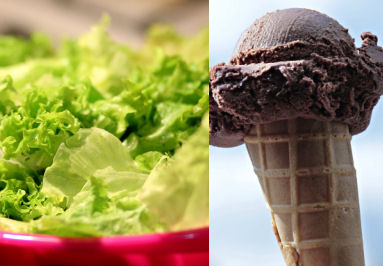Trying to lose weight? That seems to be the permanent state for many of us.There’s no instant cure, and it’s mostly what you eat. A sad statement, but true. Losing weight is hard. Really hard. Especially as we get older. And it seems to be even harder for us women. So many of my friends are struggling to lose the extra pounds the pandemic caused them to pack on. And it’s harder after menopause to maintain our current weight without gaining any.
Losing weight after menopause is not impossible
Yes, it’s hard. But it’s not impossible. Yes, hormonal changes tend to increase our appetite and change the way our bodies store fat. Unfortunately, it’s around our middles. And after menopause our activity levels tend to decrease which leads to loss of muscle mass.
But we can change that. It is not a foregone conclusion that you can’t lose weight after menopause.
The same methods that worked before menopause to lose weight work after. It just takes more discipline and thought on our part to make them work.
So, what’s the plan?
In order for you to lose weight, the formula is very simple. You have to burn more calories than you consume. Simple, right? It’s mostly what you eat: specifically it matters how much you eat. No matter what you read anywhere else, the combinations don’t matter. Where your food comes from doesn’t matter. What matters are the numbers.
After that it’s a head game.
Your body will trick you to eat more. A calorie of ice cream looks a lot different than a calorie of kale. Your mind wants more ice cream. Or cheese puffs. Sometimes it’s really hard to say no to that. And that’s the hard part. It’s hard sticking to the plan when the numbers on the scale don’t move.
For long-term success, it works best to lose weight at a slower rate. If you slash your calorie intake, you’re going to be hungry. Your body will tell you that it’s starving. And even if you lose a ton of weight quickly, you’ll gain most if not all – or even more – of it back within six months. Plus, you won’t be taking in the quality nutrients you need to maintain your muscle and bone mass.
To maintain our weight, experts say that most women need about 1,400 to 1,800 calories a day to maintain their weight. Taller women and those who weigh more to start are at the higher end of the range and those of us (like me) who are smaller need less. That has never seemed fair to me, being “height-challenged.” But, anyway …
So it stands to reason that eating less than 1,400 calories a day will put you on the road to weight loss. Experts say that cutting 200 – 300 calories a day makes sense for weight-loss of about a pound a week. Four pounds a month sounds pretty good for a sustained weight-loss plan.
And this is a plan that you can stick to. You’ll be able to take in the nutrients your body needs and lose the weight that you need to.
But, wait. You always write about exercise being important
Yes, yes I do always write about exercise. Exercise lets me burn even more calories so that I can eat more. And exercise has other benefits beyond weight-loss that I’ve written about.
But today it’s about the head games your body plays with your diet.
Those hormones that I referred to at the top of this article will trick you into snacking. They’ll trick you into eating more mashed potatoes. And those extra calories will go to your belly.
So you have to play more serious head games with yourself to stay on the straight and narrow path.
No, you don’t want that cookie. Water sounds delightful. I’ll take a walk instead of eating that pint of Ben & Jerry’s in the freezer. In the coming weeks I’ll talk more about my tips and tricks for sticking with the plan.
For now, please know that it’s not impossible. It’s just hard. But you’re fierce and able to do it.

